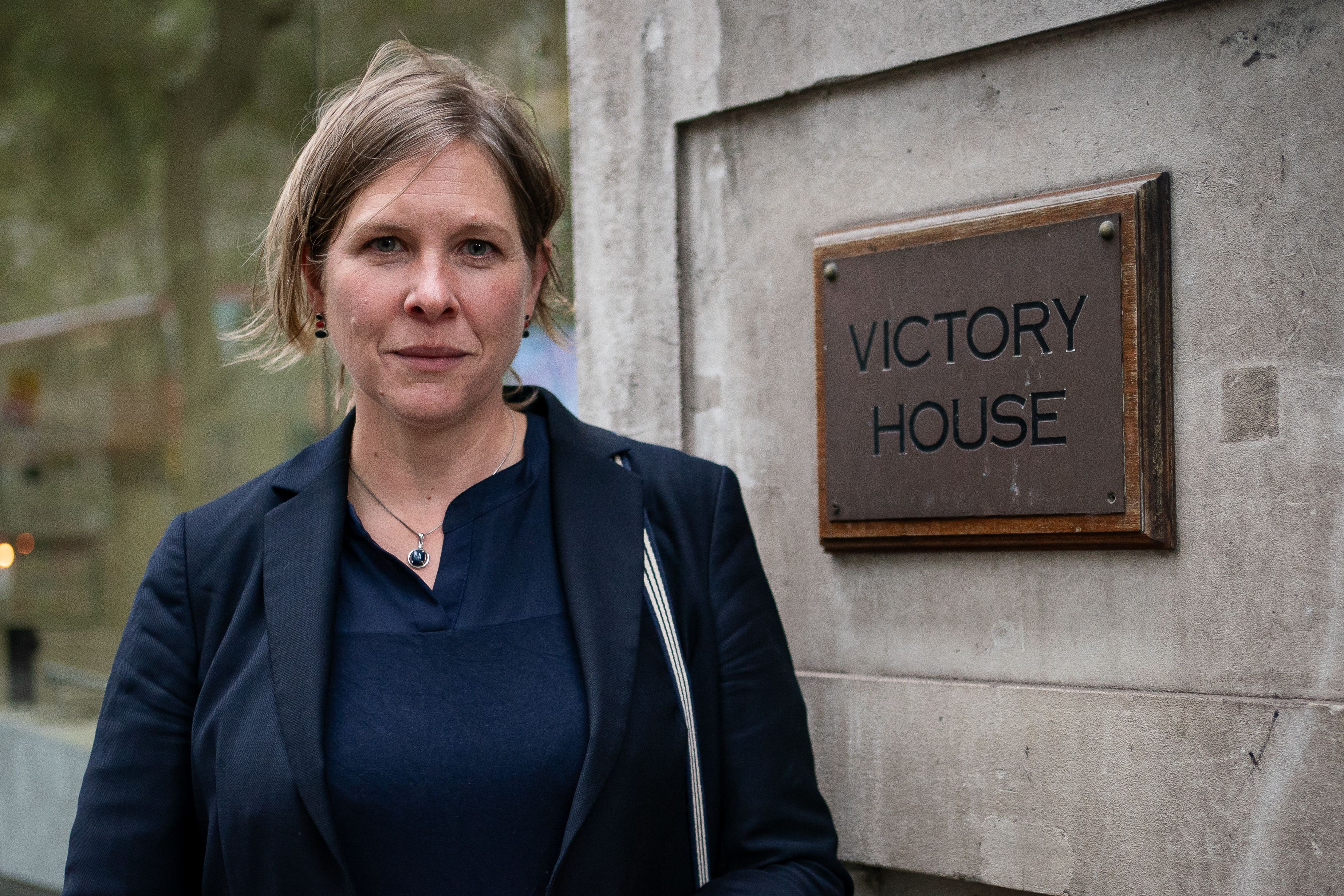Failures in Afghanistan evacuation probably cost lives, tribunal hears
Josie Stewart believed Government officials prioritised ‘managing political and media fallout’ over effective evacuation, judges heard.

Your support helps us to tell the story
From reproductive rights to climate change to Big Tech, The Independent is on the ground when the story is developing. Whether it's investigating the financials of Elon Musk's pro-Trump PAC or producing our latest documentary, 'The A Word', which shines a light on the American women fighting for reproductive rights, we know how important it is to parse out the facts from the messaging.
At such a critical moment in US history, we need reporters on the ground. Your donation allows us to keep sending journalists to speak to both sides of the story.
The Independent is trusted by Americans across the entire political spectrum. And unlike many other quality news outlets, we choose not to lock Americans out of our reporting and analysis with paywalls. We believe quality journalism should be available to everyone, paid for by those who can afford it.
Your support makes all the difference.A sacked Foreign Office whistleblower believed the Government’s “chaotic, dysfunctional and ineffective” response to the fall of Kabul “probably cost lives”, a tribunal has heard.
Josie Stewart was “horrified” at how the Afghanistan Crisis Centre was run, as top politicians and officials – including then-prime minister Boris Johnson – prioritised “managing political and media fallout” over evacuating “those in most need on the ground”, tribunal documents say.
Ms Stewart, a former senior official at the Foreign, Commonwealth and Development Office (FCDO), was dismissed after an interview with the BBC in which she spoke about her “tragic experiences” working in the FCDO crisis centre in the summer of 2021.
Following the Taliban gaining control of Afghanistan, the British government evacuated 15,000 people from its capital, Kabul, in what was known as Operation Pitting.
On Thursday, Ms Stewart attended an employment tribunal against the department, in which she is alleging unfair dismissal for making a protected disclosure.
The case will decide the extent of the rights of civil servants to make public interest disclosures to the press when “misleading claims” from ministers and civil servants are made to Parliament and the media, according to Ms Stewart’s lawyers.
Documents supplied to the Central London Employment Tribunal read: “(Ms Stewart) believed that the Government’s mismanagement of the crisis caused huge amounts of avoidable suffering in Afghanistan and that it had probably cost lives.”
Ms Stewart also suggested Mr Johnson, then-foreign secretary Dominic Raab and other “political and civil service leaders” made misleading claims about the success of the evacuation efforts in Afghanistan and the performance of the crisis centre.
She said in some instances officials were deliberately “dishonest”.
The tribunal heard Mr Johnson was involved in an “outrageous” decision to allow animals and staff working for the charity Nowzad to use Kabul airport which he then publicly denied involvement with – an allegation Ms Stewart had put before the Foreign Affairs Select Committee in 2022.
Internal emails, to which Ms Stewart had access, demonstrated that Mr Johnson had been involved in the decision, her lawyers argued.
They added: “Demonstrating that the (Prime Minister) had intervened in a potentially life and death scenario to favour a less vulnerable group over a more vulnerable group, and then publicly denied doing so, is a matter of quintessential public interest.”
Mr Raab had told the same committee in September 2021 that he believed the crisis centre had met requirements, a comment Ms Stewart had suggested was “misleading” at a preliminary tribunal hearing last year.
Ms Stewart – whose anonymity was compromised after her unredacted emails were accidentally posted on social media – did not feel “safe” disclosing her concerns internally at the FCDO as she feared the department may have put “a black mark against my name”, tribunal judges heard.
Her lawyers said this left the whistleblower in an “impossible” situation as she believed it was in the public interest to speak out about how the Government had failed and subsequently attempted to “cover up” those failures.
In a witness statement referred to at an earlier preliminary hearing, Ms Stewart claimed she “witnessed denial, lies and the complete lack of accountability” while working on the Afghan crisis response.
She said: “In my career as a civil servant, I witnessed many failings within government and was privy to much information that would have made a good news story.
“I disclosed none of it.
“But through the Afghan evacuation, I witnessed both the biggest foreign policy failure of our time and the shameful handling of the resulting crisis.
Lawyers for the FCDO had previously challenged the admissibility of some of Ms Stewart’s evidence on the grounds that including parts of her witness testimony would breach article nine of the Bill of Rights 1689 and general principles of parliamentary privilege.
Article nine says: “The freedom of speech and debates or proceedings in Parliament ought not to be impeached or questioned in any court or place out of Parliament.”
In November, the employment tribunal decided to allow some of the whistleblower’s contested evidence, but redacted some elements.
An FCDO spokesperson said: “The 2021 Afghanistan response was the biggest mission of its kind in generations and the second largest evacuation carried out by any country – and we are proud of our staff who worked tirelessly to evacuate more than 15,000 people within a fortnight.
“We have learned lessons from the evacuation and have seen the benefits of this work in our response to the Sudan and Niger evacuations, as well as in our response to Russia’s invasion of Ukraine and the ongoing situation in the Middle East.
“We have continued to provide assistance to those in Afghanistan, including bringing thousands more people to safety. We cannot comment further while legal proceedings are ongoing.”
The tribunal will continue until May 20.